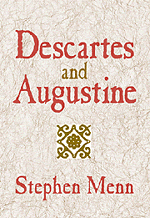5 - The design of the Meditations
Published online by Cambridge University Press: 04 August 2010
Summary
From the Rules to the Meditations
Having seen what Augustinianism was as a discipline for approaching wisdom, we can begin to see why Descartes found it fruitful for his philosophical project.
Descartes, like Augustine, is searching for wisdom. But the seventeenthcentury expectation of wisdom will not be satisfied merely by knowing God and the soul: Descartes' goal is a discipline which is practical, yielding directions for action, in medicine and mechanics as well as in morals, and which is also a unified science, derived in strict sequence from directly intuited first principles. Descartes hopes to derive the practical branches of wisdom from a new scientific physics (and human physiology); but he can convert the fragments of empirical physics into a science only if he can discover the appropriate first principles. The Descartes of the Rules is looking for such principles, but has not yet found them. After 1628, after the conversation with Bérulle and the retreat to Holland, Descartes claims to have discovered in the rational intuitions of God and the soul, as produced by the Augustinian discipline of contemplation, adequate first principles for a universal science. The thesis of the Meditations is precisely that these intuitions are “principles of philosophy,” because God and the soul are “better known” than bodies: the Meditations argue first that we cannot know bodies unless we first know God and the soul (Meditation 1), then that we can know God and the soul independently of any knowledge of bodies (Meditations 2 and 3), and finally that we can derive a knowledge of bodies from this pure knowledge of God and the soul (Meditations 4–6).
- Type
- Chapter
- Information
- Descartes and Augustine , pp. 209 - 244Publisher: Cambridge University PressPrint publication year: 1998

